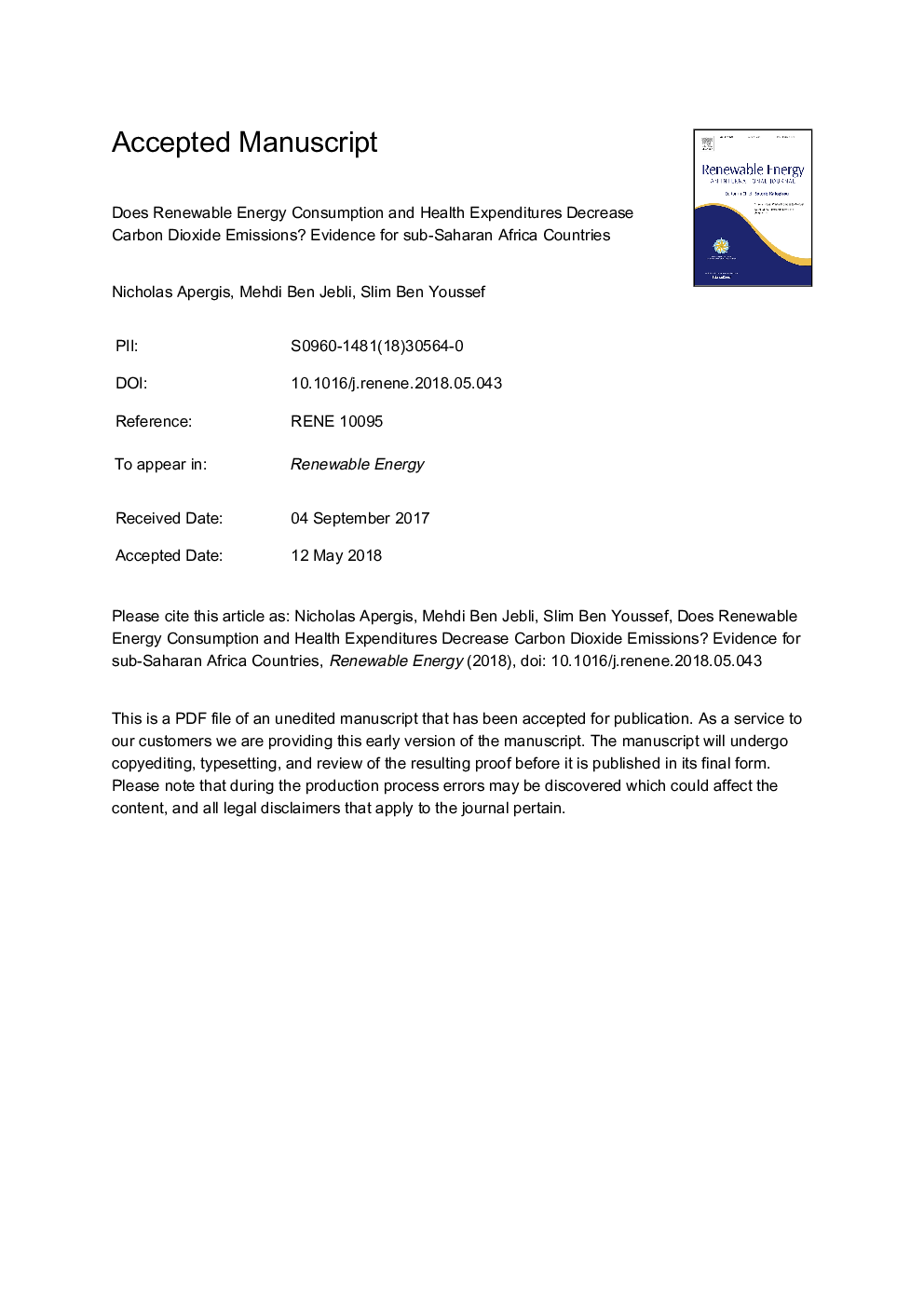| کد مقاله | کد نشریه | سال انتشار | مقاله انگلیسی | نسخه تمام متن |
|---|---|---|---|---|
| 6764190 | 1431577 | 2018 | 22 صفحه PDF | دانلود رایگان |
عنوان انگلیسی مقاله ISI
Does renewable energy consumption and health expenditures decrease carbon dioxide emissions? Evidence for sub-Saharan Africa countries
ترجمه فارسی عنوان
آیا مصرف انرژی تجدید پذیر و هزینه های بهداشتی باعث کاهش انتشار دی اکسید کربن می شود؟ شواهد برای کشورهای آفریقا و جنوب صحرای آفریقا؟
دانلود مقاله + سفارش ترجمه
دانلود مقاله ISI انگلیسی
رایگان برای ایرانیان
کلمات کلیدی
موضوعات مرتبط
مهندسی و علوم پایه
مهندسی انرژی
انرژی های تجدید پذیر، توسعه پایدار و محیط زیست
چکیده انگلیسی
This paper employs panel methodological approaches to explore the link between per capita carbon dioxide (CO2) emissions, per capita real gross domestic product (GDP), renewable energy consumption, and health expenditures as health indicator for a panel of 42 sub-Saharan Africa countries, spanning the period 1995-2011. Empirical results support a long-term relationship between variables. In the short-run, Granger causality reveals the presence of unidirectional causalities running from real GDP to CO2 emissions, to renewable energy consumption, and to heath expenditures, and bidirectional causality between renewable energy consumption and CO2 emissions. In the long-run, there is a unidirectional causality running from renewable energy consumption to health expenditures, and bidirectional causality between health expenditures and CO2 emissions. Our long-run elasticity estimates document that both renewable energy consumption and health expenditures contribute to the reduction of carbon emissions, while real GDP leads to the increase of emissions. We recommend these countries to pursue their economic growth and invest in health care and renewable energy projects, which will enable them to benefit from their abundant wealth in renewable energy resources, improve the health conditions of their citizens, and fight climate change.
ناشر
Database: Elsevier - ScienceDirect (ساینس دایرکت)
Journal: Renewable Energy - Volume 127, November 2018, Pages 1011-1016
Journal: Renewable Energy - Volume 127, November 2018, Pages 1011-1016
نویسندگان
Nicholas Apergis, Mehdi Ben Jebli, Slim Ben Youssef,
